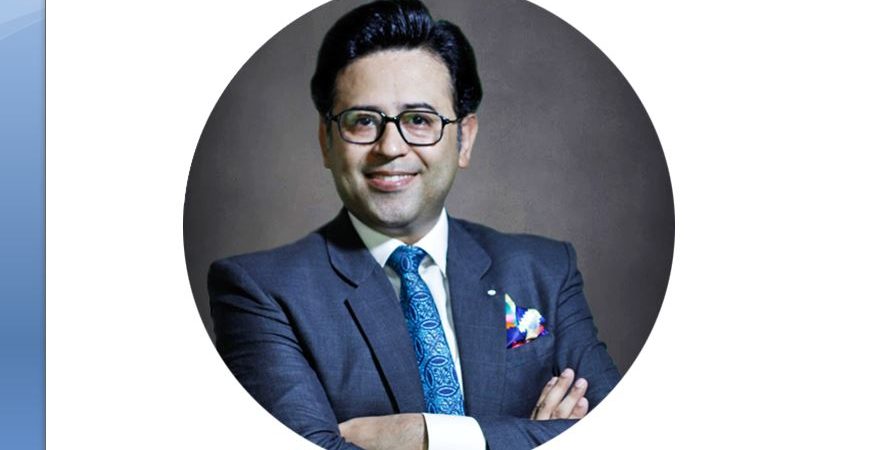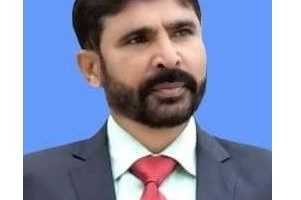Anti-State Oligarchs – Story of Vladimir Gusinsky Part 2

Dr M Ali Hamza
The epigraph of Pakistan Supreme Court’s order for special probe into corruption allegations against Nawaz Sharif resounds: “behind every great fortune there is a crime”. But the misled anti-state individuals forget their crimes on the way to the surprising fortune. Another case of a Russianopportunist can make us understand the stream behind the great fortune and how to pull the strings.
Vladimir AlexandrovichGusinsky was born in a lower middle class Russian family, where the mother worked as an engineer at Gazprom, and the father was a simple worker. Although, he entered the Moscow Institute of the Petrochemical and Gas Industry, but was an academic failure: as he recalled himself “I was a bad student, played cards, was fond of women, and drank a lot.” Later, in 1981, he earned a degree in theatrical arts and started his professional career as mass-events’ organizer: days of culture, regional holidays, etc. In the absence of events, he also worked as a taxi driver. Within 5 years he had some recognition in the sector, and became the Director General of the “Cultural program for foreigners” at the 1986 Goodwill Games. With the surprising luck in 1986, together with Boris Khait (later-the president of the investment group ‘SpasskieVorota’) he created the Cooperative “METAL”, which produced a number of goods like medical bracelets made of copper wire, to metal garages. Moving forward, in 1988 he founded the consulting and information cooperative “INFEX”, which provided consultative services to interested foreign investors, and helped them bypass the bureaucratic formalities in the USSR. Moreover in May 1989, INFEX and the American law firm Arnold & Porter established a joint venture on parity basis and as a result in October of the same year, MOST-Bank (MOST is Russian for Bridge) was formed. In 1990, the Americans withdrew from the project and “MOST” became a Russian enterprise. In 1992, 42 of Gusinsky’s companies transformed into a holding called “Joint Stock Company (JSC) “MOST Group”, and Gusinsky became the President and the Director General. As president of JSC, Gusinsky successfully ran a construction business that was also involved in the production of building materials and other real estate transactions. Remember the scenario in which these handpicked people like Gusinsky were given opportunities to establish businesses in an open market environment (read part 1 for the reference).
The unimaginably quick wealth accumulation was not enough, thus in 1993, MOST Group co-founded the Segodnya (“TODAY”) newspaper, the NTV television company, and became a sponsor of the radio station “Echo of Moscow”. The political meddling package was ready at this junction, therefore at the end of 1993, during the first Duma elections; Gusinsky financed the election campaigns of two political parties: Russia’s Choice, and Yabloko. Then in 1996, he created and headed the Russian Jewish Congress, which allowed him to establish contacts with the most influential representatives of the Jewish community, not only in Russia, but throughout the world, and this was the beginning of Gusinsky’s god syndrome.
Moving on in 1997 he left MOST Bank and took over the top position in the Media-MOST holding, which included the television companies NTV, NTV +, TNT, radio Echo Moskvy, as well as print media – the newspaper Segodnya, magazines Itogi, Seven Days, A caravan of stories “. By the year 2000 Gusinsky became co-owner of New Media Internet (sites Inopressa.ru, Newsru.com, Superstyle.ru, Ej.ru and others) and in 2001 he founded the TV channel RTVi (Russian Television International) and got his footprint throughout the globe.
By this time Gusinskyfell prey to his own vicious desire of accumulating power to a level, where he could access and control the strings in Kremlin. For instance in 1999 an alliance, which included President Yeltsin, and a group of powerful businessmen, publicly known as the “Family”, was formed. This alliance brought in Vladimir Putin as the successor to President Yeltsin. At the same time, Gusinsky positioned himself outside of the “Family” and supported the election of anti-Kremlin alliance of Primakov&Luzhkov. This was the beginning of the conflict between Gusinsky, the Family, and Putin. In the same year, when Kremlin accused Chechen separatists of terrorist attacks in Moscow and other cities in Russia, Gusinsky’s NTV decided to take on the state, airing the opposite opinion. NTV started its own investigation of the matters, built anti-Kremlin narrative, and Gusinsky refused to end such activities. This was the breaking point in the relationship between Gusinsky and the Kremlin.
Though, he began feeling himself above the law, but it is customary for mere mortals to repay debts. In his awe, he did not really care about the repayment of loans. Unfortunately, other leaders of Media-MOST and NTV, which was part of it, succumbed to the same mood of their own exclusiveness. With this attitude, the Gusinskyempire was simply doomed to collapse. It all started in March 2000, immediately after the victory of Vladimir Putin in the first round of presidential elections in Russia. Gazprom demanded that Media-MOST must immediately repay $212 million, which the gas monopoly had transferred to Credit Suisse First Boston, as a guarantor for the Media-MOST loan. The negotiations did not lead to anything, and on June 13, Vladimir Gusinsky was arrested on charges of fraud: according to the prosecutor’s office, Gusinsky illegally took over Channel 11 of St. Petersburg television, paying $5,000 instead of $10 million for it. Formally, this case had nothing to do with the conflict with Gazprom. A month later, it became known that the agreement had been signed and Gazprom was buying Media-Most for $773 million, of which Gusinsky received only $300 million, the rest went to pay off the debt. Immediately after that, Gusinsky emigrated from the country, having flown with his family to Spain.
In September of the same year, the Russian Prosecutor General’s Office announced the continuation of the investigation. Soon Gusinsky was put on the international wanted list. In April 2001, the businessman was charged with new money laundering charges. At the same time he transferred his media business to the state-owned Gazprom-Media. The Media-MOST holding was liquidated by a court order in May 2001.
In general, we could say that fortune favored Gusinsky. He always managed to avoid prison in a wonderful way. Even in the stagnant years, he was prosecuted for fraud, however, he ended-up missing the jail. But one must not stretch one’s fortune to the limits, and one must pay the cost of good-fortune. Fundamentally Gusinsky disregarded the designers of his astounding fortune, thus he started screwing with the CRAFTERS of his “luck”.
Pakistan has its own fools, who believe that it is they who are king makers. They have started roasting their fortune makers, but have completely overlooked the fact that on the way to such startling financial growth they have left behind some dirty patches, and State has the record. Will Pakistan bring these misled fools to their knees as Kremlin did? Another case study will be presented in the next part.
Related News

The Doctrine of Putin and the Direction of Russia
Dr. Muhammad Akram Zaheer For more than two decades, Vladimir Putin has been the centralRead More

Trump’s Instigation of Treason: From Venezuela to Iran
Qamar Bashir Imagine a moment so extreme that it defies the basic logic of nationalRead More


Comments are Closed